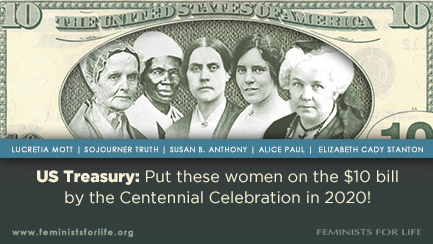
The same belief in human rights that inspired the abolition of slavery became the undulating impulse that gave birth to feminism.
The first feminists—who had no legal right to vote, testify on their own behalf, or sit on a jury—affirmed the fundamental liberty of every woman, just as many had affirmed the fundamental liberty of every enslaved person. After being denied full participation at the World Anti-Slavery Convention in London in 1840, having no legal protection from marital rape, and being unable to control their own finances or (with the exception of a few dozen women at Oberlin College) pursue higher education, they made women’s suffrage their most cherished dream.
The same women who supported the abolition of slavery and women’s suffrage also advocated for mothers and their children—born and unborn.
Learn about these remarkable women to be featured $10 bill:
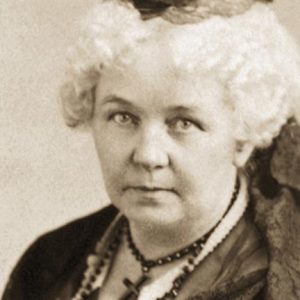 Elizabeth Cady Stanton After being denied the ability to fully participate at the World Anti Slavery Convention in London in 1840, Stanton became the founder of the women’s movement, organizing the Seneca Falls Convention and writing the Declaration of Sentiments for women. She supported higher education of women and the right of married women to hold property (only single women had this privilege at the time). The mother of the movement was also the mother of seven. She celebrated each child’s birth as a victory.
Elizabeth Cady Stanton After being denied the ability to fully participate at the World Anti Slavery Convention in London in 1840, Stanton became the founder of the women’s movement, organizing the Seneca Falls Convention and writing the Declaration of Sentiments for women. She supported higher education of women and the right of married women to hold property (only single women had this privilege at the time). The mother of the movement was also the mother of seven. She celebrated each child’s birth as a victory.
Learn more here: https://www.feministsforlife.org/elizabeth-cady-stanton-honored-by-ffl-of-western-new-york/
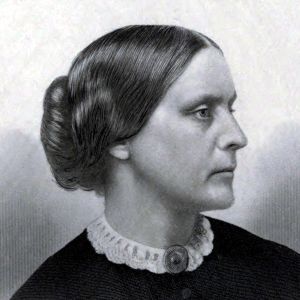 Susan B. Anthony: Best known as the lead organizer traveling by train across America for the suffrage movement, Anthony tirelessly campaigned for the poor, professional women’s employment rights, children’s rights, abolition of slavery and the death penalty, and temperance. She illegally voted, was arrested and never paid the fine, took part in the Underground Railroad, and sheltered a domestic violence victim and her child. Anthony was the owner of The Revolution, co-edited by Elizabeth Cady Stanton and others.
Susan B. Anthony: Best known as the lead organizer traveling by train across America for the suffrage movement, Anthony tirelessly campaigned for the poor, professional women’s employment rights, children’s rights, abolition of slavery and the death penalty, and temperance. She illegally voted, was arrested and never paid the fine, took part in the Underground Railroad, and sheltered a domestic violence victim and her child. Anthony was the owner of The Revolution, co-edited by Elizabeth Cady Stanton and others.
Learn more here: https://feministsforlife.org/-taf/1998/spring/Spring98.pdf (page 19)
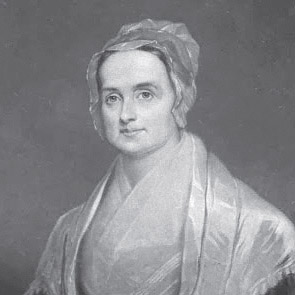 Lucretia Mott: Lucretia Mott (1793-1880) became a Quaker minister in 1821. Like many of her faith, Mott embraced pacifism and condemned racism. She organized boycotts of slave-harvested goods like cotton and cane sugar, and worked for full integration within numerous groups, winning the trust of blacks, including fugitive slaves, throughout her native Philadelphia. Mott’s suffragist efforts began in earnest when she learned of vast discrepancies between local male and female teachers’ salaries. In 1848, Mott and Elizabeth Cady Stanton organized the Seneca Falls Convention, where famous abolitionist Frederick Douglass helped lobby for women’s suffrage. Mott is the author of “Discourse on Woman,” among other works. In the 1860s, she helped establish the American Equal Rights Association and Swarthmore College.
Lucretia Mott: Lucretia Mott (1793-1880) became a Quaker minister in 1821. Like many of her faith, Mott embraced pacifism and condemned racism. She organized boycotts of slave-harvested goods like cotton and cane sugar, and worked for full integration within numerous groups, winning the trust of blacks, including fugitive slaves, throughout her native Philadelphia. Mott’s suffragist efforts began in earnest when she learned of vast discrepancies between local male and female teachers’ salaries. In 1848, Mott and Elizabeth Cady Stanton organized the Seneca Falls Convention, where famous abolitionist Frederick Douglass helped lobby for women’s suffrage. Mott is the author of “Discourse on Woman,” among other works. In the 1860s, she helped establish the American Equal Rights Association and Swarthmore College.
Learn more about her here: https://www.feministsforlife.org/lucretia-mott-1793-1880/
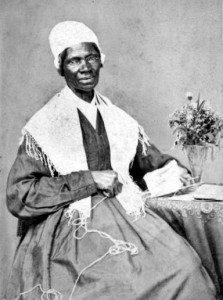 Sojourner Truth: At 9 , Sojourner Truth (Isabella “Bell” Baumfree)(ca. 1797-1883) was auctioned off with a flock of sheep for $100 and remained a slave until she was a young adult. When her son, only 5, was illegally enslaved, she sued for his recovery and became the first black woman to win such a case against a white man. In 1829, Truth embraced Christian Evangelism (later Methodism, later Adventism), preaching widely on abolition and women’s rights. In the early 1850s, her words appeared in the Anti-Slavery Bugle, and she won influential friends like Lucretia Mott and Susan B. Anthony. During the Civil War, Truth recruited black troops for the Union, meeting President Abraham Lincoln; at war’s end, she tried unsuccessfully to secure federal land grants for former slaves. In 1872, after a meeting with President Ulysses S. Grant, Truth attempted to vote, but was barred from the polls. Once asked if she were a man, the tall, stately Truth showed her breasts, and delivered her famous refrain, “Ain’t I a Woman?” first uttered in 1851.
Sojourner Truth: At 9 , Sojourner Truth (Isabella “Bell” Baumfree)(ca. 1797-1883) was auctioned off with a flock of sheep for $100 and remained a slave until she was a young adult. When her son, only 5, was illegally enslaved, she sued for his recovery and became the first black woman to win such a case against a white man. In 1829, Truth embraced Christian Evangelism (later Methodism, later Adventism), preaching widely on abolition and women’s rights. In the early 1850s, her words appeared in the Anti-Slavery Bugle, and she won influential friends like Lucretia Mott and Susan B. Anthony. During the Civil War, Truth recruited black troops for the Union, meeting President Abraham Lincoln; at war’s end, she tried unsuccessfully to secure federal land grants for former slaves. In 1872, after a meeting with President Ulysses S. Grant, Truth attempted to vote, but was barred from the polls. Once asked if she were a man, the tall, stately Truth showed her breasts, and delivered her famous refrain, “Ain’t I a Woman?” first uttered in 1851.
Learn more here: https://www.feministsforlife.org/sojourner-truth-1797-1883/
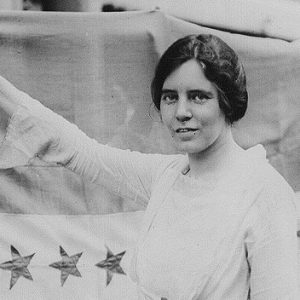 Alice Paul: Alice Paul (1885-1977) was inspired by the fiery Pankhurst sisters to join the militant Women’s Social and Political Union. She first became known as an agitator in England, where she was repeatedly jailed, only to be released after hunger-striking. Paul later partnered with Lucy Burns to form the National Woman’s Party; members marched on Washington in 1913. From 1917 to 1920, Paul and dozens of “Silent Sentinels” held daily vigils at the White House, braving accusations of treason, physical attacks, and false imprisonment, until the 19th Amendment finally enfranchised women. Having earned advanced degrees in sociology, economics, and law, Paul devised the original Equal Rights Amendment in 1923; it failed passage by three votes. She was dismayed when, decades later, NOW made abortion-on-demand an ERA agenda item.
Alice Paul: Alice Paul (1885-1977) was inspired by the fiery Pankhurst sisters to join the militant Women’s Social and Political Union. She first became known as an agitator in England, where she was repeatedly jailed, only to be released after hunger-striking. Paul later partnered with Lucy Burns to form the National Woman’s Party; members marched on Washington in 1913. From 1917 to 1920, Paul and dozens of “Silent Sentinels” held daily vigils at the White House, braving accusations of treason, physical attacks, and false imprisonment, until the 19th Amendment finally enfranchised women. Having earned advanced degrees in sociology, economics, and law, Paul devised the original Equal Rights Amendment in 1923; it failed passage by three votes. She was dismayed when, decades later, NOW made abortion-on-demand an ERA agenda item.
Learn more here: https://feministsforlife.org/-taf/2001/summer/Summer01.pdf (page 3)
Join Feminists for Life’s elist.
Join our conversation on Facebook
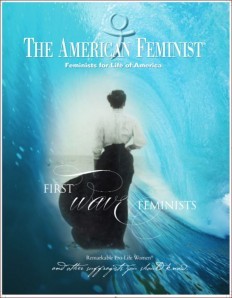
Join Feminists for Life of America
New supporters ($35 or more/$25 for students) and monthly donors will receive documentation about “First Wave Feminists: Remarkable Pro-Life Women® and Other Suffragists You Should Know” and much more: www.feministsforlife.org/support





